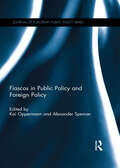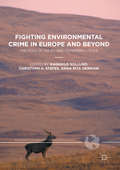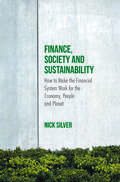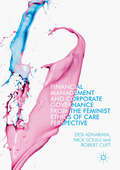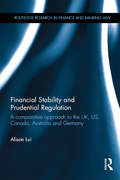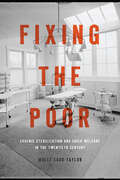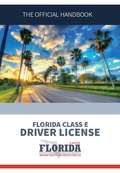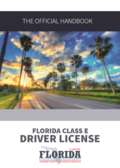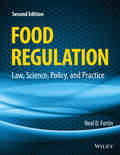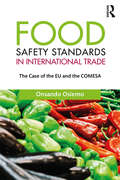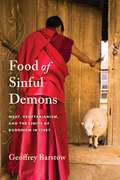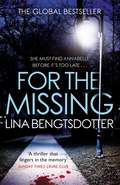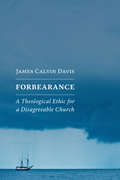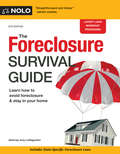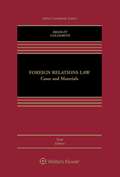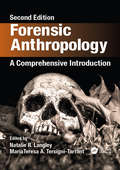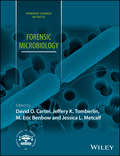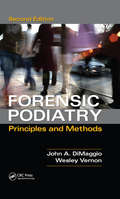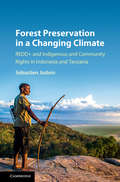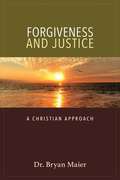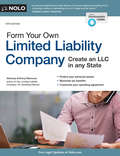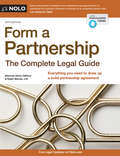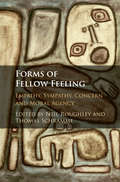- Table View
- List View
Fiascos in Public Policy and Foreign Policy (ISSN)
by Kai Oppermann and Alexander SpencerThe collection brings together scholars from Public Policy and Foreign Policy to address the theme of policy fiascos. So far research on failure and fiascos in both Public Policy and Foreign Policy has existed independent of each other with very little communication between the two sub-disciplines. The contributions aims to bridge this divide and bring the two sides into a dialogue on some of the central issues in the study of fiascos including how to define, identify and measure policy failure (and success); the social and political contestation about what counts as policy fiascos; the causes of policy fiascos and their consequences; the attribution of blame; as well as processes of learning from fiascos. A common theme of the collection will be to explore different epistemological and methodological approaches to studying policy fiascos. The volume appeals to scholars and practitioners interested in policy failures and fiascos both within and among states and other international actors. This book was previously published as a special issue of the Journal of European Public Policy.
Fighting Environmental Crime in Europe and Beyond
by Christoph H. Stefes Ragnhild Sollund Anna Rita GermaniThis book will bring together the findings of a multi-disciplinary and international research project funded by the European Union (EU). "European Union Action to Fight Environmental Crime" (EFFACE) was a 40-month research project that included eleven European research institutions and think tanks and was led by Ecologic Institute Berlin. EFFACE assessed the impacts of environmental crime as well as effective and feasible policy options for combating it from an multidisciplinary perspective, with a focus on the EU. As part of this project, numerous instances of environmental crime within and outside of the EU were studied and are now presented in this volume. This edited collection is highly innovative in showing not only the many facets of environmental crime, but also how it should be conceptualised and the consequences. An original and rigorous study, this book will be of particular interest to policy makers and scholars of green criminology and environmental studies.
Finance, Society and Sustainability: How to Make the Financial System Work for the Economy, People and Planet
by Nick SilverThis book is a critical analysis of the impact of the financial system on the economy, society and the natural environment. It cuts through the noise to looks at its purpose, its activities, and what it does in practice.Unlike other books that cover the last financial crisis and the risk of another one; this book is about the consequence of the financial system continuing in its current form. It argues that the financial system is a construct of flawed economic theories, designed in the hope that the market will efficiently allocate society’s capital. Instead, the finance sector allocates savings and investment to maximize its own revenues, with resulting collateral damage to the economy, society and the environment.Although governments try to preserve and regulate the existing system, it is being replaced by a new system driven by technological innovation. The book describes the opportunities this presents for a renaissance of the financial system to actually meet the needs of society, and to re-engineer our economy to avoid environmental crisis.The book is for anyone who would like to understand the finance system’s purpose, what it does in practice and its impact on the real world. For those working in the industry it provides an overview of the system, their place within it, and how to bring about change. For students and academics it provides a valuable critique of the financial system, and the theories on which it is based. For financial policymakers and regulators it identifies key challenges in their activities.
Financial Management and Corporate Governance from the Feminist Ethics of Care Perspective
by Desi Adhariani Nick Sciulli Robert CliftThis book investigates how businesses can adapt their executive and fiscal practices to adopt an ethical, equal-opportunity approach. The authors demonstrate how corporations can create sustainable work environments that embrace feminist care ethics and ground their research in a strong theoretical discussion of this relatively new framework. The discussion has a multidisciplinary outlook and explores how the concept of care ethics might be successfully applied to various professional contexts. Later chapters present findings from an empirical case study conducted in Australia and use both qualitative and quantitative methods to analyse the potential power of a feminist care of ethics approach within commercial and corporate management.
Financial Stability and Prudential Regulation: A Comparative Approach to the UK, US, Canada, Australia and Germany (Routledge Research in Finance and Banking Law)
by Alison LuiFinancial stability is one of the key tenets of a central bank’s functions. Since the financial crisis of 2007-2009, an area of hot debate is the extent to which the central bank should be involved with prudential regulation. This book examines the macro and micro-prudential regulatory frameworks and systems of the United Kingdom, Australia, the United States, Canada and Germany. Drawing on the regulator frameworks of these regions, this book examines the central banks’ roles of crisis management, resolution and prudential regulation. Alison Lui compares the institutional structure of the new ‘twin-peaks’ model in the UK to the Australian model, and the multi-regulatory US model and the single regulatory Canadian model. The book also discusses the extent the central bank in these countries, as well as the ECB, are involved with financial stability, and argues that the institutional architecture and geographical closeness of the Bank of England and Financial Policy Committee give rise to the fear that the UK central bank may become another single super-regulator, which may provide the Bank of England with too much power. As a multi-regional, comparative study on the importance and effectiveness of prudential regulation, this book will be of great use and interest to students and researchers in finance and bank law, economics and banking.
Fixing the Poor: Eugenic Sterilization and Child Welfare in the Twentieth Century
by Molly Ladd-TaylorHow state welfare politics—not just concerns with "race improvement"—led to eugenic sterilization practices.Honorable Mention, 2018 Outstanding Book Award, The Disability History AssociationShortlist, 2019 Wallace K. Ferguson Prize, Canadian Historical AssociationBetween 1907 and 1937, thirty-two states legalized the sterilization of more than 63,000 Americans. In Fixing the Poor, Molly Ladd-Taylor tells the story of these state-run eugenic sterilization programs. She focuses on one such program in Minnesota, where surgical sterilization was legally voluntary and administered within a progressive child welfare system.Tracing Minnesota's eugenics program from its conceptual origins in the 1880s to its official end in the 1970s, Ladd-Taylor argues that state sterilization policies reflected a wider variety of worldviews and political agendas than previously understood. She describes how, after 1920, people endorsed sterilization and its alternative, institutionalization, as the best way to aid dependent children without helping the "undeserving" poor. She also sheds new light on how the policy gained acceptance and why coerced sterilizations persisted long after eugenics lost its prestige. In Ladd-Taylor's provocative study, eugenic sterilization appears less like a deliberate effort to improve the gene pool than a complicated but sadly familiar tale of troubled families, fiscal and administrative politics, and deep-felt cultural attitudes about disability, dependency, sexuality, and gender. Drawing on institutional and medical records, court cases, newspapers, and professional journals, Ladd-Taylor reconstructs the tragic stories of the welfare-dependent, sexually delinquent, and disabled people who were labeled "feebleminded" and targeted for sterilization. She chronicles the routine operation of Minnesota's three-step policy of eugenic commitment, institutionalization, and sterilization in the 1920s and 1930s and shows how surgery became the "price of freedom" from a state institution. Combining innovative political analysis with a compelling social history of those caught up in Minnesota's welfare system, Fixing the Poor is a powerful reinterpretation of eugenic sterilization.
Florida Class E Driver License 2017: The Official Handbook
by Florida Department of Highway Safety Motor VehiclesThis guide has the information you need to prepare for the Florida Driver License Class E knowledge and skills exams and to help you drive safely and lawfully.
Florida Class E Driver License: The Official Handbook
by Florida Department of Highway Safety Vehicles MotorThe Official Florida Driver License Handbook is produced by the Florida Department of Highway Safety and Motor Vehicles (DHSMV). This guide has the information you need to prepare for the Florida Driver License Class E knowledge and skills exams and to help you drive safely and lawfully.
Food Regulation: Law, Science, Policy, and Practice
by Neal D. FortinFeaturing case studies and discussion questions, this textbook - with revisions addressing significant changes to US food law - offers accessible coverage appropriate to a wide audience of students and professionals. * Overviews the federal statutes, regulations, and regulatory agencies concerned with food regulation and introduces students to the case law and statutory scheme of food regulation* Focuses updated content on the 2011 FDA Food Safety Modernization Act (FSMA), the biggest change to US food law since the 1930s* Contains over 20% new material, particularly a rewritten import law chapter and revisions related to food safety regulation, health claims, and food defense* Features case studies and discussion questions about application of law, policy questions, and emerging issues
Food Safety Standards in International Trade: The Case of the EU and the COMESA
by Onsando OsiemoFood safety has become a major concern for consumers in the developed world and Europe in particular. This has been highlighted by the recent spate of food scares ranging from the BSE (mad cow) crisis to Chinese melamine contamination of baby formula. To ensure food safety throughout Europe, stringent food safety standards have been put in place ‘from farm to fork’. At the same time, poor African countries in the COMESA rely on their food exports to the European market to achieve their development goals yet have difficulty meeting the EU food safety standards. This book examines the impact of EU food safety standards on food imports from COMESA countries. It also critically examines both EU and COMESA food safety standards in light of the WTO SPS Agreement and the jurisprudence of the WTO panels and Appellate Body. The book makes ground-breaking proposals on how the standards divide between the EU and the COMESA can be bridged and discusses the impact of EU food safety standards on food imports from poor African countries.
Food Safety Standards in International Trade: The Case of the EU and the COMESA
by Onsando OsiemoFood safety has become a major concern for consumers in the developed world and Europe in particular. This has been highlighted by the recent spate of food scares ranging from the BSE (mad cow) crisis to Chinese melamine contamination of baby formula. To ensure food safety throughout Europe, stringent food safety standards have been put in place ‘from farm to fork’. At the same time, poor African countries in the COMESA rely on their food exports to the European market to achieve their development goals yet have difficulty meeting the EU food safety standards. This book examines the impact of EU food safety standards on food imports from COMESA countries. It also critically examines both EU and COMESA food safety standards in light of the WTO SPS Agreement and the jurisprudence of the WTO panels and Appellate Body. The book makes ground-breaking proposals on how the standards divide between the EU and the COMESA can be bridged and discusses the impact of EU food safety standards on food imports from poor African countries.
Food of Sinful Demons: Meat, Vegetarianism, and the Limits of Buddhism in Tibet (Studies of the Weatherhead East Asian Institute, Columbia University)
by Geoffrey BarstowTibetan Buddhism teaches compassion toward all beings, a category that explicitly includes animals. Slaughtering animals is morally problematic at best and, at worst, completely incompatible with a religious lifestyle. Yet historically most Tibetans—both monastic and lay—have made meat a regular part of their diet. In this study of the place of vegetarianism within Tibetan religiosity, Geoffrey Barstow explores the tension between Buddhist ethics and Tibetan cultural norms to offer a novel perspective on the spiritual and social dimensions of meat eating.Food of Sinful Demons shows the centrality of vegetarianism to the cultural history of Tibet through specific ways in which nonreligious norms and ideals shaped religious beliefs and practices. Barstow offers a detailed analysis of the debates over meat eating and vegetarianism, from the first references to such a diet in the tenth century through the Chinese invasion in the 1950s. He discusses elements of Tibetan Buddhist thought—including monastic vows, the Buddhist call to compassion, and tantric antinomianism—that see meat eating as morally problematic. He then looks beyond religious attitudes to examine the cultural, economic, and environmental factors that oppose the Buddhist critique of meat, including Tibetan concepts of medicine and health, food scarcity, the display of wealth, and idealized male gender roles. Barstow argues that the issue of meat eating was influenced by a complex interplay of factors, with religious perspectives largely supporting vegetarianism while practical concerns and secular ideals pulled in the other direction. He concludes by addressing the surge in vegetarianism in contemporary Tibet in light of evolving notions of Tibetan identity and resistance against the central Chinese state. The first book to discuss this complex issue, Food of Sinful Demons is essential reading for scholars interested in Tibetan religion, history, and culture as well as global food history.
For the Missing: The gripping Scandinavian crime thriller smash hit
by Lina Bengtsdotter'A thriller that lingers in the memory' SUNDAY TIMES CRIME CLUB'Dark Nordic noir' THE i 'A global bestseller' SUNDAY TIMES The award-winning, international bestselling Swedish crime debut about a missing girl, and the detective who must return home and confront her darkest secrets in order to find her - for fans of Susie Steiner, Samuel Bjork, and Lisa Jewell.______________________________________THE MISSINGNora's daughter Annabelle has disappeared, last seen on her way home from a party.THE LOSTGullspång's inexperienced police are wilting under the national media spotlight - and its residents desperate for answers.THE CLOCK IS TICKINGStockholm DI Charlie Lager must return home to find Annabelle, and then get out of town as soon as she can. Before everyone discovers the truth about her . . .If you liked MISSING, PRESUMED by Susie Steiner, I'M TRAVELLING ALONE by Samuel Bjork, and THEN SHE WAS GONE by Lisa Jewell you will love FOR THE MISSING, the international crime bestseller with a stunning ending.______________________________________WHAT REAL READERS ARE SAYING:'Oh My Gosh! This is epic!''This is a great crime mystery''An interesting and fascinating read''Highly recommended''I am just amazed when a debut author presents a crime thriller in a fresh way''The tension grows and grows up to a stunning conclusion'
Forbearance: A Theological Ethic for a Disagreeable Church
by James Calvin DavisOffers a faithful, constructive way to deal with dissent What happens when we approach disagreement not as a problem to solve but as an opportunity to practice Christian virtue? In this book James Calvin Davis reclaims the biblical concept of forbearance to develop a theological ethic for faithful disagreement. Pointing to Ephesians and Colossians, in which Paul challenged his readers to "bear with each other" in spite of differences, Davis draws out a theologically grounded practice in which Christians work hard to maintain unity while still taking seriously matters on which they disagree. The practice of forbearance, Davis argues, offers Christians a dignified, graceful, and constructive way to deal with conflict. Forbearance can also strengthen the church's public witness, offering an antidote to the pervasive divisiveness present in contemporary culture.
Foreclosure Survival Guide, The: Keep Your House or Walk Away With Money in Your Pocket
by Amy LoftsgordonIf you're one of the millions Americans who are having trouble making your mortgage payments or are already in danger of foreclosure, this guide will give you the practical information you need, including: the ins and outs of foreclosure how to decide if you should try to keep your house federal programs to help you avoid foreclosure alternatives to foreclosure, such as short sales and deeds in lieu delaying or avoiding foreclosure with bankruptcy, and avoiding foreclosure scams. This edition of the nation's bestselling book on foreclosure is updated with the latest information on the federal Making Home Affordable programs, federal mortgage servicing rules, recent court decisions affecting homeowner?s rights, and state foreclosure procedures and timelines.
Foreign Relations Law: Cases and Materials (Aspen Casebook)
by Jack Goldsmith Curtis BradleyA leading casebook on foreign relations law, authored by two widely cited and experienced scholars, Foreign Relations Law: Cases and Materials, Sixth Edition examines the law that regulates the conduct of contemporary U.S. foreign relations. It offers a compelling mix of cases, statutes, and executive branch materials, as well as extensive notes and questions and discussion of relevant historical background.
Forensic Anthropology: A Comprehensive Introduction, Second Edition
by Natalie R. Langley MariaTeresa A. Tersigni-TarrantThis robust, dynamic, and international field has grown to include interdisciplinary research, continually improving methodology, and globalization of training. Reflecting the diverse nature of the science from experts who have shaped it, Forensic Anthropology: A Comprehensive Introduction Second Edition builds off of the success of the first edition and incorporates standard practices in addition to cutting-edge approaches in a user-friendly format, making it an ideal introductory-level text.
Forensic Anthropology: A Comprehensive Introduction, Second Edition
by Natalie R. Langley MariaTeresa A. Tersigni-TarrantThis robust, dynamic, and international field has grown to include interdisciplinary research, continually improving methodology, and globalization of training. Reflecting the diverse nature of the science from experts who have shaped it, Forensic Anthropology: A Comprehensive Introduction Second Edition builds off of the success of the first edition and incorporates standard practices in addition to cutting-edge approaches in a user-friendly format, making it an ideal introductory-level text.
Forensic Microbiology (Forensic Science in Focus)
by David O. Carter M. Eric Benbow Jeffery K. Tomberlin Jessica L. MetcalfForensic Microbiology focuses on newly emerging areas of microbiology relevant to medicolegal and criminal investigations: postmortem changes, establishing cause of death, estimating postmortem interval, and trace evidence analysis. Recent developments in sequencing technology allow researchers, and potentially practitioners, to examine microbial communities at unprecedented resolution and in multidisciplinary contexts. This detailed study of microbes facilitates the development of new forensic tools that use the structure and function of microbial communities as physical evidence. Chapters cover: Experiment design Data analysis Sample preservation The influence of microbes on results from autopsy, toxicology, and histology Decomposition ecology Trace evidence This diverse, rapidly evolving field of study has the potential to provide high quality microbial evidence which can be replicated across laboratories, providing spatial and temporal evidence which could be crucial in a broad range of investigative contexts. This book is intended as a resource for students, microbiologists, investigators, pathologists, and other forensic science professionals.
Forensic Podiatry: Principles and Methods, Second Edition
by Denis Wesley Vernon John A. DiMaggioForensic Podiatry: Principles and Methods, Second Edition has been completely updated to reflect the latest developments and advancements in this changing field. New additions to the book, from the previous edition, include all new chapters on the expert witness, Frye Test, and Daubert Standard, as well as revised theories on gait analysis, bare footprint identification, and footwear examination. The new edition includes extensive case studies and an international compilation of current best practices. Since this text’s first publication, the field of forensic podiatry has rapidly developed from relative obscurity to a dynamic, internationally recognized discipline. Forensic podiatrists have been able to advance improvements in the field, both in widening the range of applications and deepening the practice through improved techniques to strengthen evidentiary conclusions. Written by two pioneers in the field, Forensic Podiatry includes over one hundred detailed illustrations to serve as an invaluable resource for students, practicing forensic podiatrists, legal professionals and those new to the profession.
Forest Preservation in a Changing Climate: REDD+ and Indigenous and Community Rights in Indonesia and Tanzania
by Sébastien JodoinThis book provides a comprehensive socio-legal examination of how global efforts to fight climate change by reducing carbon emissions in the forestry sector (known as REDD+) have affected the rights of Indigenous Peoples and local communities in developing countries. Grounded in extensive qualitative empirical research conducted globally, the book shows that the transnational legal process for REDD+ has created both serious challenges and unexpected opportunities for the recognition and protection of indigenous and community rights. It reveals that the pursuit of REDD+ has resulted in important variations in how human rights standards are understood and applied across multiple sites of law in the field of REDD+, with mixed results for Indigenous Peoples and local communities in Indonesia and Tanzania. With its original findings, rigourous research design, and interdisciplinary analytical framework, this book will make a valuable contribution to the study of transnational legal processes in a globalizing world. This title is also available as Open Access. Explores the opportunities as well as the challenges that REDD+ has created for the protection of human rights in developing countries. Provides comprehensive analysis of the implications of REDD+ for the rights of Indigenous Peoples and local communities. Original findings developed through extensive fieldwork provide new insights for those working on the intersections of REDD+ and rights.
Forgiveness and Justice: A Christian Approach
by Bryan MaierForgiveness and Justice is extremely useful for any practitioner needing to form a useful, theologically sound understanding of forgiveness for those who come for help.
Form Your Own Limited Liability Company
by Anthony MancusoMake your business an LLC. Structuring your business as an LLC can bring important advantages: It lets you limit your personal liability for business debts and simplify your taxes. Here, you’ll find the key legal forms you need to create an LLC in your state, including: LLC articles of organization, Operating agreement for member-managed LLC, LLC management operating agreement, LLC reservation of name letter, Minutes of meeting form Form Your Own Limited Liability Company has easy-to-understand instructions, including how to create an operating agreement that covers how profits and losses are divided and major business decisions are made. You’ll also learn how to choose a unique LLC name that meets state legal requirements and how to take care of ongoing legal and tax paperwork. This new edition of has been carefully revised and updated to reflect the latest federal regulations, as well as the most current laws of all 50 states. Plus, all the forms you need are included. Interactive forms are downloadable. This book covers only United States law, unless it specifically states otherwise.
Form a Partnership: The Complete Legal Guide
by Ralph Warner Denis CliffordEverything you and your partners need to go into business together! Form a Partnership thoroughly explains the legal and practical issues involved in forming a business partnership, creating a partnership agreement and protecting each person's interests. In plain English, the book covers: partnerships compared to other business structures the financial and tax liability of partners contributions of cash, property and services what happens if a partner wants out how to value partnership assets admitting new partners buying out a partner's interest limited partnerships and much more. This edition of Form a Partnership is totally revised and updated to reflect the law and realities of today's business world. Plus, all the forms you need to create a partnership agreement are provided.
Forms of Fellow Feeling
by Neil Roughley Thomas SchrammeWhat is the basis of our capacity to act morally? This is a question that has been discussed for millennia, with philosophical debate typically distinguishing two sources of morality: reason and sentiment. This collection aims to shed light on whether the human capacity to feel for others really is central for morality and, if so, in what way. To tackle these questions, the authors discuss how fellow feeling is to be understood: its structure, content and empirical conditions. Also discussed are the exact roles that relevant psychological features - specifically: empathy, sympathy and concern - may play within morality. The collection is unique in bringing together the key participants in the various discussions of the relation of fellow feeling to moral norms, moral concepts and moral agency. By integrating conceptually sophisticated and empirically informed perspectives, Forms of Fellow Feeling will appeal to readers from philosophy, psychology, sociology and cultural studies.
